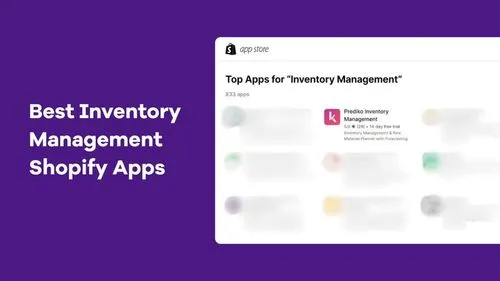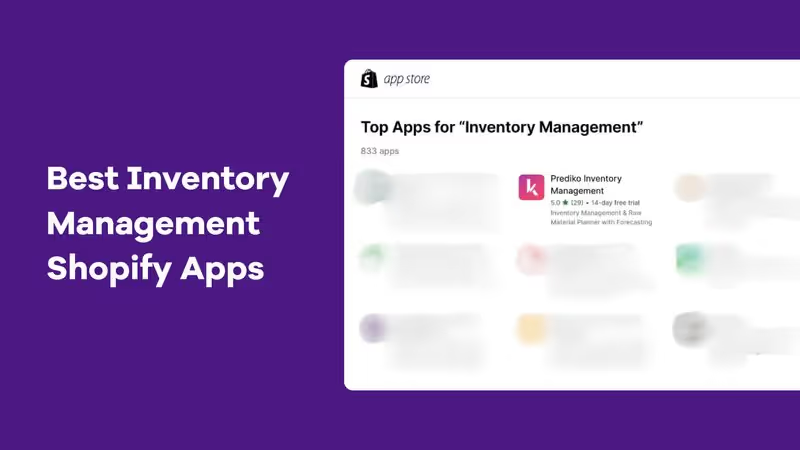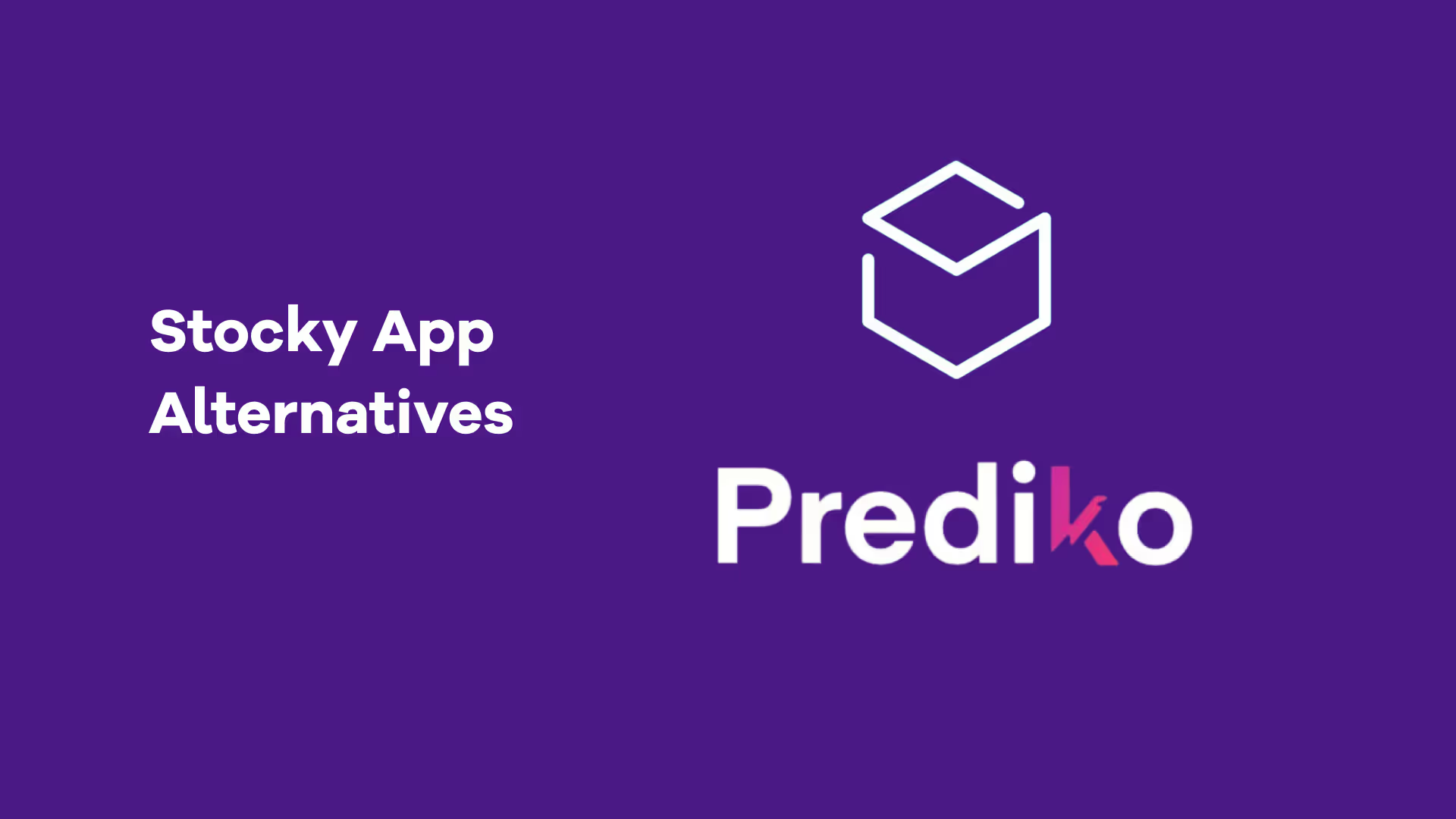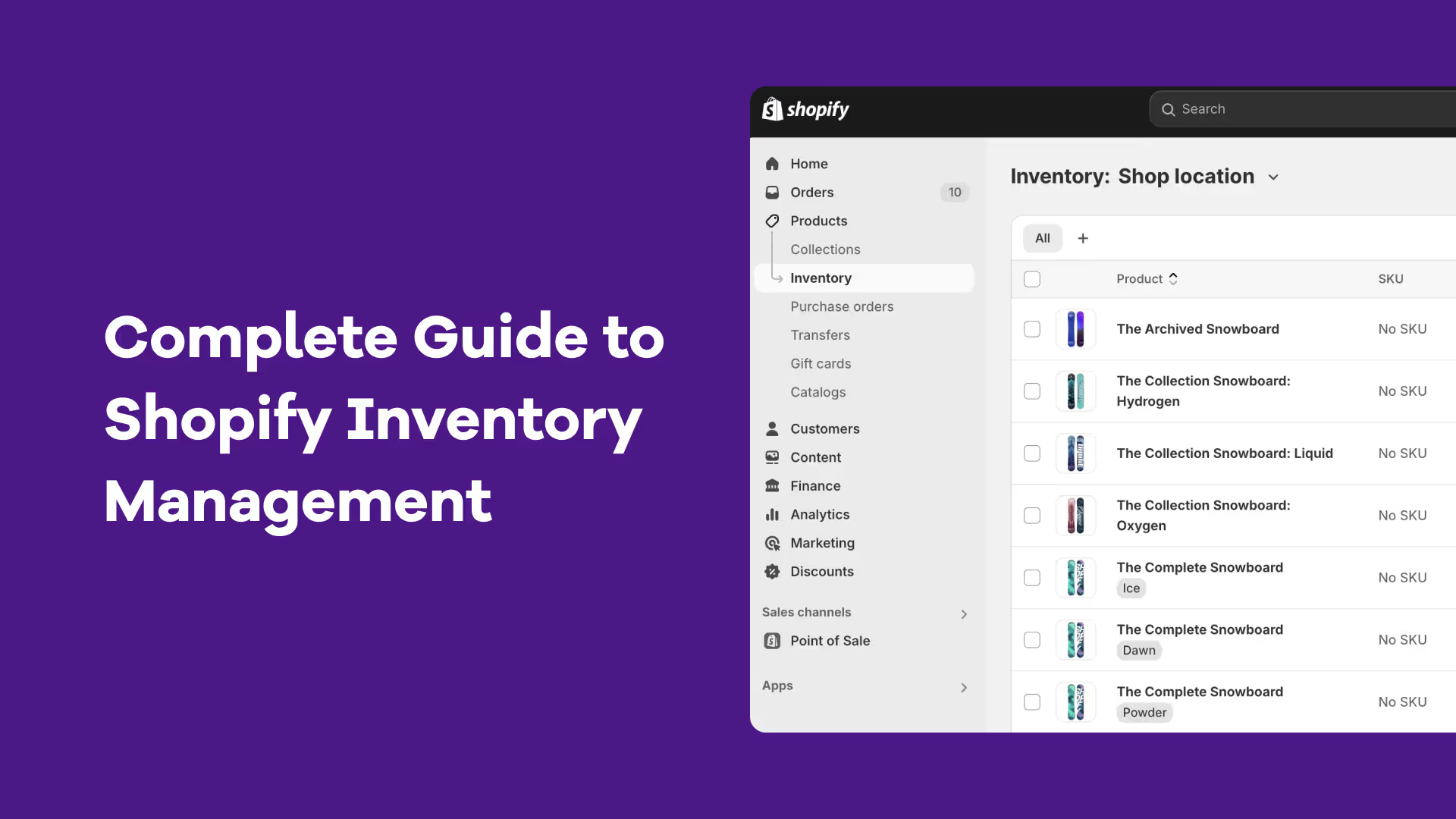A search on Shopify App store for “inventory management” gives a result of 1000+ apps. We have narrowed down those 1000 apps to the ones that have the best combination of features, pricing, support & onboarding.
Common features amongst the top inventory management apps are:
- Automated stock alerts
- Multi-location inventory tracking
- Purchase order management
- Advanced Reports
- Stock Health Analysis
- Real-time Inventory sync
All the inventory management apps listed in this blog have most of these features and are very good in their capabilities. However we have kept ourselves at the top of this list because we believe that we have created an app that truly caters to all inventory management and operational needs of a modern Shopify D2C brand.
Our goal at Prediko is to help brands stay on top of stock levels, improve cash flow and to restock on time, every time.
No. 1 👉 Prediko's AI Inventory Management App
Overall: Best overall for Shopify brands. AI-driven demand forecasting, advanced inventory reporting, and deep Shopify integration.
4.9 ⭐ (180+ Reviews on Shopify Store)
Features that make Prediko better than rest of the inventory management apps in the Shopify ecosystem
- AI-driven sales forecasting for precise demand planning at SKU, category, and company levels
- Smart inventory planning with automated out-of-stock alerts and buying recommendations
- Streamlined purchase order management for easy creation, tracking, and bulk editing
- 20+ customizable inventory reports with over 100+ customizable filters (CSV or PDF)
- Integrated bill of materials (BOM) and raw material components for finished products.
Prediko also has a big advantage over other inventory management apps. We are able to accurately forecast demand for Shopify brands running subscriptions.
Learn about these leading eCommerce brands that have operationalised their Shopify inventory with Prediko
- Healf Achieved 75x ROI by Reducing Stockout
- How Obsidian Piercing Increased Best Seller Revenue by 200%
- How Kate Hewko boosted Inventory Efficiency by 40%
Pricing
New: Starter Plans now just at $49/Month
A quick demo of Prediko 👇
Guide: Learn everything about Shopify Inventory Management
Comparison of Top Shopify Inventory Management apps in 2026
Below is a quick comparison of the 10 best Shopify inventory management tools based on pricing, features, and app store availability.
2. Stock Sync: Inventory Sync
Overall: Ideal for syncing inventory across multiple sources and formats (CSV, XML, Google Sheets), with automation and ease of use. Stock Sync is an app that can be used for handling inventory from multiple sources.
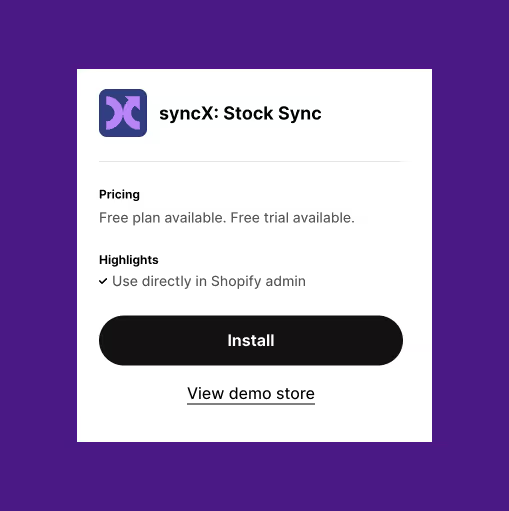
Main features of this Shopify app
- This app enables updation of product information and inventory quantities. It also supports transfer of products to your Shopify store.
- Ensures stock accuracy from all inventory sources
- App is compatible with CSV, XML, Google Sheets, and API, making the import and export of inventory data a straightforward process.
Pricing
Free plan available on App store.
3. Quickbooks Online Global
Overall: Great for multichannel merchants who want accounting-integrated inventory syncing and fulfillment from multiple locations.
QuickBooks has the capability to import orders and payouts from your linked online sales platforms.
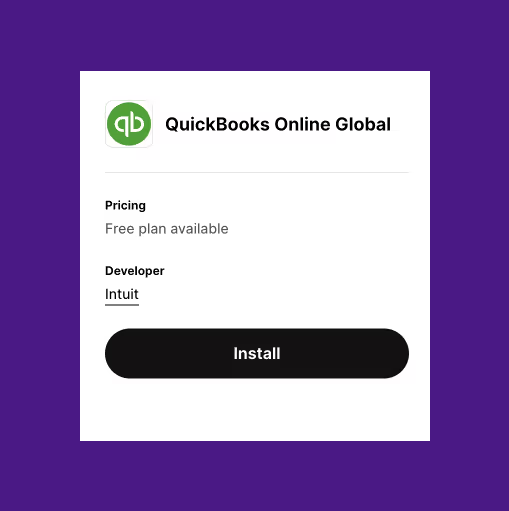
Main Features of this Shopify app
- Maintain accurate inventory levels as you sync product & stock and fulfil orders from various warehouses.
- Multichannel orders: Handle orders from eCommerce, marketplace, and wholesale channels in a single central location
- Initiate eCommerce businesses and link it with Shopify store.
Pricing
Free plan available on App store.
4. Katana Manufacturing ERP
Overall: Designed for makers and manufacturers needing production planning and Shopify order syncing with warehouse control.
Oversee & track your Shopify inventory and orders with Katana ERP.
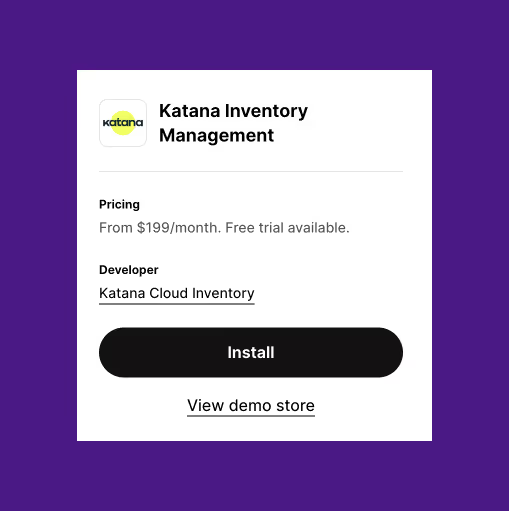
Main Features of this Shopify app
- Import incoming orders from Shopify automatically and maintain synchronisation of fulfilment status and inventory.
- Create a visual production plan. Stay informed about the status of each order in your production timeline.
- Keep track of your inventory and also update inventory with easy sync.
Pricing
Pricing starts from $199/month
We have also compiled a list of the top raw materials management apps that you can find in the Shopify ecosystem.

5. Inventory Planner
Overall: Excellent for forecasting and smart replenishment using sales history, lead times, and vendor data.
Inventory Planner is a Shopify forecasting app for eCommerce and multichannel retailers.
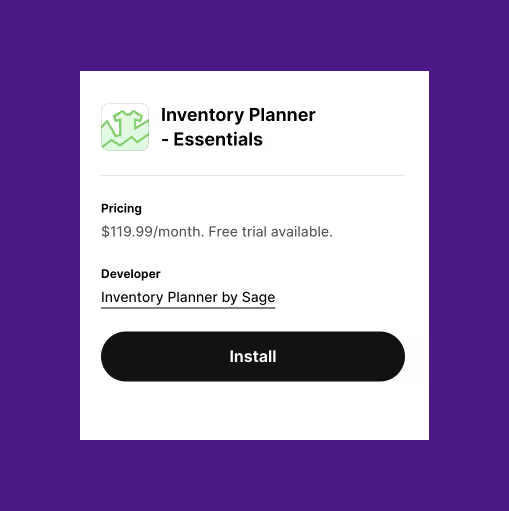
Main features of this Shopify app
- Forecasting and Analysis: This feature, along with inventory reporting, enables merchants to make restocking decisions.
- Sync with Sales: After installation, Inventory Planner syncs with sales history. It uses this data, along with additional information like vendor lead time, to generate forecast.
- Make Purchase Orders and save a lot of time on buying. Share merchant essentials, case sizes, and other provider explicit information.
Despite all these features, there are plenty of great Inventory Planner alternatives.
Pricing
Pricing starts from $119.99/month
We have also compiled a list of the top purchase order management apps that you can find in the Shopify app ecosystem.
6. SKULabs
Overall: Best for complex inventory environments with barcode-based fulfillment and shipping rate comparisons across carriers.
SKULabs is a Shopify app for managing inventory, warehouse, and orders across multiple channels.
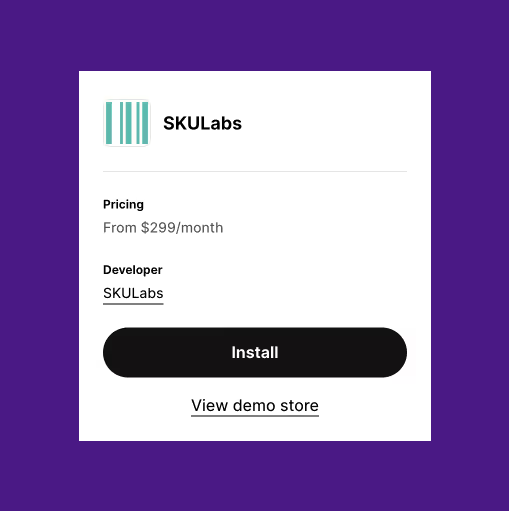
Main features of this Shopify app
- Ensure consistency in stockroom inventory and maintain it across all sales channels.
- Ensure complete counting of orders by scanning barcodes to check and select stock.
- Streamline shipping process and costs by comparing rates from different carriers.
Pricing
Pricing starts from $299/month
7. Fabrikator Inventory Assistant
Overall: Optimized for predictive insights and pre-order/backorder management with tailored inventory analytics.
Fabrikator helps you to attain predictions, streamline procurement orders, and manage backorders.
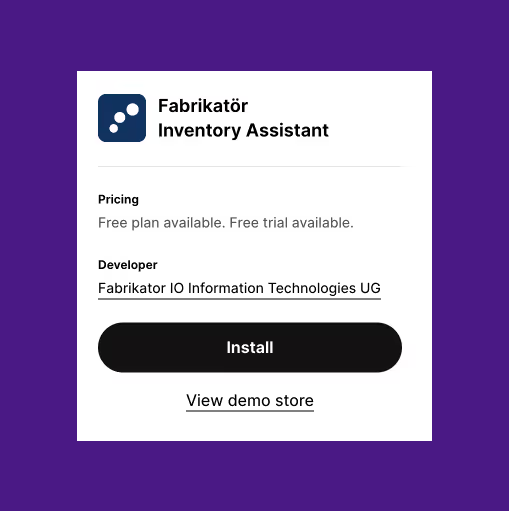
Main features of this Shopify app
- Make inventory predictions to empower you to make more informed choices.
- Work with out-of-stock products & pre-orders and backorders
- Tailored insights & reports to analyze data and make informed choices.
We have also done an in-depth comparison of Inventory Planner vs Fabrikator
Pricing
Free plan available.
8. Netsuite Inventory Management
Overall: Best for enterprise-level sellers needing multi-location tracking, demand planning, and marketplace integrations.
NetSuite Inventory Management provides access & analysis of inventory across locations and sales channels of a brand.
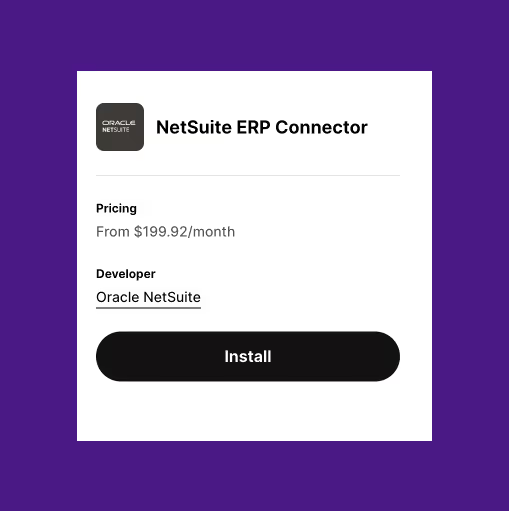
Main features of this Shopify app
- Netsuite integrates with eBay and Etsy.
- Get inventory visibility across warehouses, 3PLs, drop shippers
- Make demand-based plans using historical demand, sales forecasts and seasonality
Orcale Netsuite ERP also appears in the list of the top 10 Fashion inventory software for apparel brands.
Pricing
Pricing starts from $199/month
9. Linnworks Inventory Management
Overall: Ideal for centralizing inventory across all sales channels with built-in warehouse management features.
Gain visibility over online sales, as Linnworks unifies the whole process across multiple channels.

Main features of this app
- Multi-channel software helps retailers streamline entire online selling
- Consolidate entire inventory operation into one central hub
- Get an integrated warehouse management system
Pricing
Free to install.
10. Cin7 Core
Overall: All-in-one inventory and manufacturing management system with real-time updates for growing Shopify operations.
Cin7 Core gives all brands features to manage manufacturing, inventory management, and automation.

Main features of this app
- A comprehensive and complete picture of production expenses and stock levels
- Use real-time updates to streamline inventory
- Manage sales of many channels through a single platform
We have also covered the list of all Cin7 alternatives.
We have also created an in-depth comparison of Cin7 vs Inventory Planner
Pricing
Starts from $349/month
Shopify brands that have multiple stores have different set of issues. In order to tackle those inventory issues, we have compiled a list of the best apps and software for multi-store inventory management.
We understand that selecting the right Shopify inventory management tool for managing operations is a big ask. At Prediko, we offer a full featured 14-day trial and guided onboarding to help you understand why we tackle most of the inventory management challenges that modern D2C brands face.
How to Choose the Right Inventory Software for Your Shopify Store?
To determine which Shopify inventory app is worth the investment, use this “SMART” criteria
- S - Specific needs: Identify the exact blockers you are facing and align features.
- M - Multi-channel integration: Opt for software that integrates with Shopify, marketplaces, accounting tools, and shipping platforms while giving you a real-time view of the consolidated data.
- A - Automation: Look for tools that automate repetitive tasks like replenishment, purchase order creation, forecasting, or inventory counting.
- R - Reporting & analytics: Prioritize platforms that offer reports and insights beyond what Shopify offers
- T - Training & support: Choose software that is backed by excellent customer support and onboarding assistance.
Frequently Asked Questions
Here are the most common questions Shopify brands search online when searching for an inventory management app



